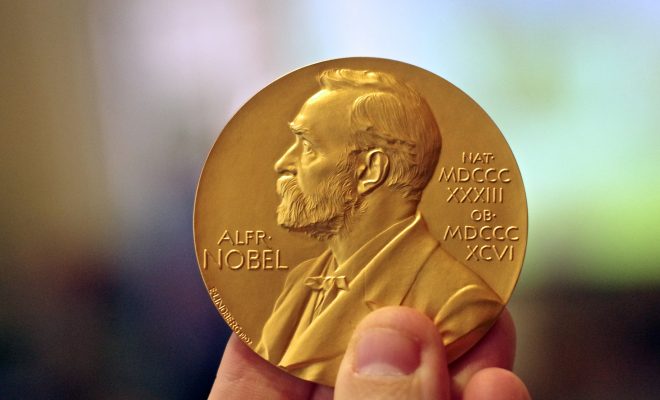 Image courtesy of Adam Baker; License: (CC BY-SA 2.0)
Image courtesy of Adam Baker; License: (CC BY-SA 2.0)
Society and Culture
Is the Nobel Prize Rewarding the Wrong Research?
Literary critics have spent the past week reeling after the Nobel Prize committee’s announcement that it has granted the 2016 Prize in literature to Bob Dylan (who hilariously failed to even acknowledge the prize for five days). The attention that Dylan’s win has garnered has detracted attention from the Nobel Prizes in both Chemistry and Physics, announced earlier this month, each resulting in an award of 8 million Swedish kronor, or $930,000, to the recipients. Three British physicists who currently work in the U.S. were awarded the prize for their examination of the properties of matter in extreme states , research which can be used for the next generation of superconductors and even quantum computers. The prize in Chemistry was awarded to a team of three scientists from France, the U.S., and the Netherlands respectively for their development of molecular machines, molecules with controllable movements. While these prizes do not draw the same attention as a Peace Prize or a Literature Prize among the general public, they are critical factors that influence what research gets funded at our top universities and how scientists decide what is worth studying. But is that really a good thing?
Incentivized research projects such as the XPrize or Cancer Research UK’s research prizes motivate innovation in certain fields but the Nobel Prize does not have such a targeted aim. Although the Nobel Peace Prize is centered around positive impact on the human race, the scientific prizes are not always as concerned with the human factor. Yes, the matter in extreme states that won the 2016 Physics Prize is incredibly innovative and the molecular machines that won the Chemistry Prize may be used to create revolutionary new materials and energy storage–but do they have immediate benefits that we will feel in 2016? Will they transform medicine, or public welfare, or the lives of the greater population of the planet within the coming months?
These projects are incredible but they are the first step in a larger chain of exploratory science that, while it is admirable and truly commendable, will not be ending world hunger, curing a disease or creating a more equitable and inclusive society within our lifetime. The Nobel Prize is a beautiful way to recognize some of our brightest minds, but it also detracts from the work going on to solve problems that need to solved in order to save lives.
The brightest scientific minds of our world often get caught up in theoretical problems, and when we reward them with financial incentives, the spotlight falls on that research rather than the work of scientists tackling more “mundane” problems. If a research institution gains a Nobel Prize, it will attract the best and brightest minds but will force them to focus on the project that received Nobel acclaim. By giving financial prizes only to scientists who are working on projects that are far-reaching rather than those who are tackling immediate crises, we may cut the legs out from valuable research that needs funding today. Projects that create crops resistant to climate change, make transit more affordable and simple and design affordable vaccines are all revolutionary and have immediate positive effects on human well being–yet none of them have received the Nobel prize. The Nobel Prize should not by any means be done away with–but perhaps the committee should consider doing even more good by rewarding research that will save lives immediately rather than possibly improve lives after several more decades of research.








Comments